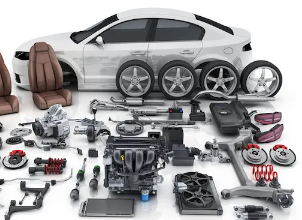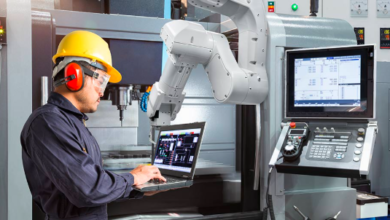Acoustic Barriers: A Comprehensive Guide to Sound Insulation Solutions

Acoustic barriers are innovative products designed specifically to reduce airborne noises and insulate impact sounds. By preventing transmission loss, these flexible sound-insulating solutions play a crucial role in creating quieter environments across various industries. Acoustic barriers are particularly effective in applications where noise reduction is essential, such as in automotive, construction, and consumer goods. This article delves into the various types of acoustic barriers, their applications, benefits, and how they contribute to improving sound insulation in multiple settings.
Understanding Acoustic Barriers
Acoustic barriers serve as a line of defense against noise pollution, effectively absorbing sound and minimizing vibrations. They can be produced in various forms, including sheets, die cuts, and water jet cuts, making them adaptable to specific needs. The flexibility of acoustic barriers allows for their application on slightly curved and wavy surfaces, ensuring that they can fit into a wide range of environments.
Key Features of Acoustic Barriers
- Sound Insulation: The primary function of acoustic barriers is to provide effective sound insulation. By reducing both airborne and impact sounds, they help maintain a quieter environment, which is particularly valuable in residential and commercial settings.
- Vibration Dampening: Acoustic barriers also function as anti-vibration pads, which significantly reduce the impact sounds caused by machinery and heavy equipment. This feature is especially beneficial in industrial applications where noise reduction is a priority.
- Thermal Radiation Reflection: Many acoustic barriers are designed to reflect thermal radiation, providing an added layer of insulation that helps maintain temperature control in various environments.
- Customizable Options: Acoustic barriers can be tailored to meet specific requirements, ensuring that they deliver optimal performance for different applications.
Types of Acoustic Barriers
1. Polymeric Acoustic Barriers
Polymeric acoustic barriers, such as C03 (1.4mm) and C09 (2.5mm), are low-density vinyl membranes filled with naturally occurring materials. These barriers are devoid of harmful substances, including lead and unrefined aromatic oils, making them safe for various applications. Designed to improve sound insulation across different frequencies, C03 and C09 barriers are typically fixed in close contact with existing panels made from metal, wood, or plastic. They effectively counteract coincidence dip resonance in lightweight composites, ensuring consistent sound insulation performance.
2. Bitumen PE Foil Covered Acoustic Barriers
Products like C022 (3mm) and C023 (5mm) are diamond-embossed black PE-faced barriers equipped with a self-adhesive backing. These barriers are particularly effective for achieving flat sound insulation, preventing transmission loss, and aiding in vibration reduction. The PE foil face acts as a protective layer, preventing oil seepage from the bitumen-based barrier, thereby maintaining cleanliness. Furthermore, the PE foil facilitates bonding with various substrates, enhancing versatility.
3. Bitumen Aluminium Acoustic Barriers
C024 is a notable example of an acoustic barrier featuring a self-adhesive backing. This barrier consists of a dense layer made from a mixture of bitumen, polymers, and mineral fillers, protected by an aluminium foil surface. Designed for areas exposed to heat, this barrier is especially effective in automotive applications, where it dampens sound in engine blocks and construction vehicles, ensuring a quieter operation.
Applications of Acoustic Barriers
Acoustic barriers are utilized across a diverse array of industries, each benefiting from their exceptional sound-insulating properties. Below are key areas where acoustic barriers play a vital role:
1. Automotive Industry
In the automotive sector, acoustic barriers are integral to reducing noise from engines, exhaust systems, and interior components. These barriers enhance passenger comfort by minimizing disruptive sounds, making driving experiences more enjoyable. Additionally, they help reduce vibrations, contributing to smoother vehicle operation.
2. Construction and Building
In the construction industry, acoustic barriers are essential for soundproofing walls, ceilings, and floors in residential and commercial buildings. They help mitigate noise pollution from external sources and minimize sound transmission between rooms, creating a more peaceful living and working environment.
3. White Goods and Home Appliances
Many household appliances, such as refrigerators, dishwashers, and washing machines, incorporate acoustic barriers to reduce operational noise. These barriers ensure that appliances run quietly, thereby enhancing user comfort in domestic spaces.
4. Marine Applications
Acoustic barriers play a significant role in the marine industry, where they help reduce noise from engines and machinery on boats and ships. By minimizing disruptive sounds, these barriers contribute to a more pleasant experience for passengers and crew members.
5. Industrial Machinery
In various industrial applications, including earth-moving and agricultural vehicles, acoustic barriers are vital for protecting workers from excessive noise exposure. These barriers help maintain a safe and healthy working environment by effectively isolating sound.
Benefits of Acoustic Barriers
The implementation of acoustic barriers offers a multitude of advantages, making them a valuable investment for various applications. Here are some key benefits:
1. Enhanced Comfort
By significantly reducing noise levels, acoustic barriers create more comfortable living and working environments. Quieter spaces contribute to improved productivity, better sleep quality, and overall enhanced well-being.
2. Improved Safety
In workplaces, especially in industrial settings, acoustic barriers help minimize noise-related distractions, allowing workers to focus on their tasks. This improvement enhances overall workplace safety by reducing the risk of accidents caused by miscommunication or lack of concentration.
3. Versatility in Applications
The adaptability of acoustic barriers enables them to be used in various industries, making them suitable for a wide range of applications. From soundproofing in construction to reducing noise in automotive settings, acoustic barriers offer tailored solutions.
4. Cost-Effective Solution
Investing in acoustic barriers can lead to long-term savings by reducing the need for additional soundproofing measures and mitigating noise-related issues. This cost-effectiveness makes them an attractive choice for businesses and homeowners alike.
5. Eco-Friendly Options
Many acoustic barriers are manufactured using environmentally friendly materials and processes, aligning with sustainability efforts. Opting for eco-friendly options helps to minimize the overall environmental impact of sound insulation solutions.
Read Also: Transform Your Space with Bespoke Garden Rooms
Quality Control in Acoustic Barriers
To ensure that acoustic barriers meet the highest industry standards, rigorous quality control measures are essential. Testing for sound transmission loss, vibration dampening capabilities, and overall durability are critical components of this process. By adhering to strict quality control standards, manufacturers can guarantee that clients receive reliable and effective acoustic solutions tailored to their specific needs.
Collaboration for Effective Solutions
At Acoustafoam, collaboration with clients is crucial in achieving optimal results. Understanding the unique challenges faced in various industries enables Acoustafoam to provide tailored solutions that extend beyond simple sound insulation. Whether addressing sound issues in construction vehicles or improving acoustic environments in marine applications, the team is committed to delivering effective acoustic barrier products that meet the highest standards of quality and performance.
Conclusion: The Future of Acoustic Barriers
Acoustic barriers are essential components in enhancing sound insulation across multiple sectors. As technology continues to advance and the demand for quieter environments increases, the importance of acoustic barriers will only grow. These products provide tailored solutions that address diverse challenges, ensuring comfort, safety, and versatility.







